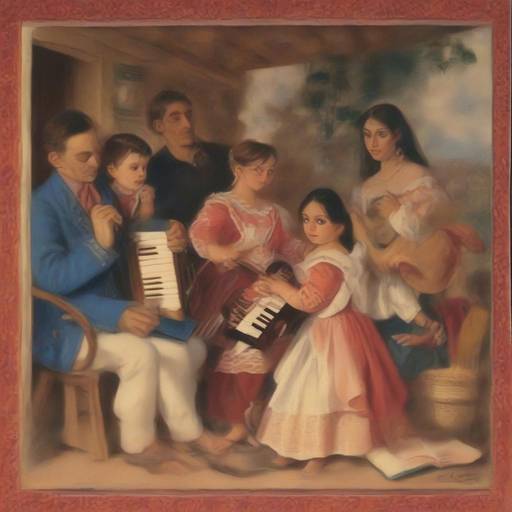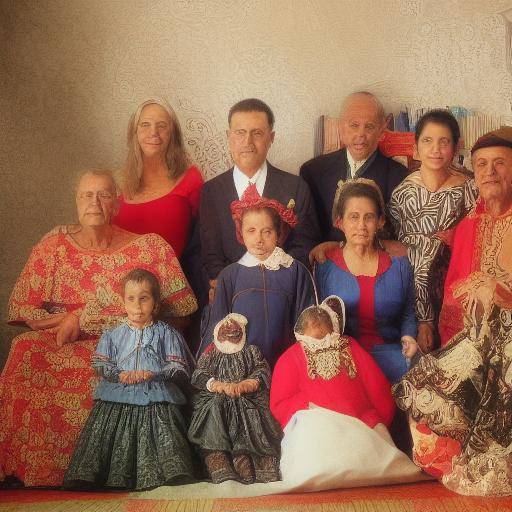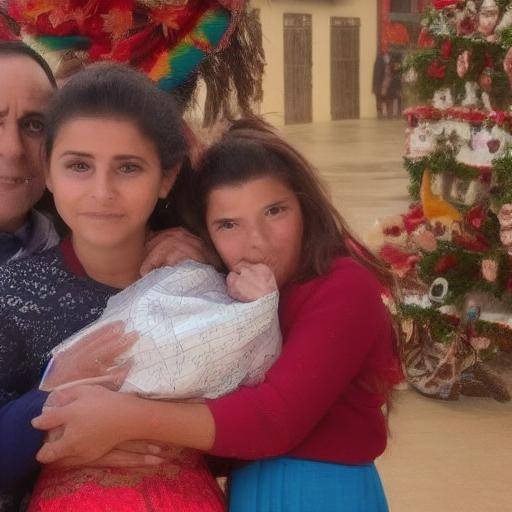
Introduction
The rapture of the bride, a practice rooted in various cultures, has been a matter of controversy and debate. In different parts of the world, this tradition has been the subject of attention due to its social and cultural implications. In the specific context of Romania, the rapture of the bride has generated intense discussions between the preservation of tradition and the protection of the rights of women. In this article, we will explore in depth the historical meaning of this practice, the negotiations involved and the role of the family in this context. We will also analyze the legal and ethical aspects, offering a complete view of the topic.
History and Background
The rapture of the bride, known as "bride kidnapping", has its roots in the ancient customs of multiple cultures in Eastern Europe and Central Asia. In Romania, this practice has been part of tradition, although its popularity has decreased in recent decades. Throughout history, the rapture of the bride has been seen as a manifestation of love and courage on the part of the suitor, but also as a form of deprivation of women's liberty.
Origins and Evolution
In ancient times, the rapture of the bride was considered a legitimate way of forming a marriage union, especially in societies where dowry was a financial obstacle to marriage. Over time, this practice has been transformed, adapting to changing social and legal norms. In some rural communities in Romania, bride abduction persists as a cultural tradition, although often with the prior consent of the bride and her family.
Negotiations and Consent
Negotiations before the rapture often involve close relatives and friends, with the aim of ensuring the consent of the bride. However, the influence of tradition and social pressures have sometimes led to situations in which the genuine consent of the bride is questionable. The evolution of these practices over time reflects changes in Romanian society and attitudes towards marriage and gender equality.
Analysis in Deep
Ethics and Human Rights
Negotiations associated with the rapture of the bride have been discussed in terms of ethics and human rights. Tensions between tradition and modern values are reflected in the manner in which these negotiations are conducted. On the one hand, it is argued that these negotiations reflect a sense of community and active participation of the family in marriage decisions. However, many critics point out that these practices can perpetuate gender inequalities and even violate the fundamental rights of women.
The Role of the Family
The role of the family in the rapture of the bride is fundamental. The family often plays a central role in the planning and implementation of this tradition. Family dynamics, social pressure and cultural expectations significantly impact the experience of the bride and her participation in this ritual. The influence of the family in marriage decisions can lead to conflicts between tradition and contemporary values of freedom and personal choice.
Exhaustive examination
Dote and Negotiations
The comparative analysis of the dowry, negotiations and family in the context of the rapture of the bride reveals multiple dimensions to be considered. The dowry, a common practice in many traditional marriages, is often negotiated together with the rapture of the bride. This practice can be seen as much as a way of ensuring the economic stability of the couple as a transaction that perpetuates the vision of women as a property.
Social and Psychological Impact
The effects of these practices on individual lives and society as a whole are topics of study and research. The benefits and challenges associated with these traditions concern the protection of human rights, gender equality and respect for different cultural identities. Women who are abducted, even with prior consent, may experience significant psychological impact, facing pressures to conform to traditional gender roles.
Case studies
Examining specific cases in different regions of Romania, variations can be observed in how bride abduction is carried out and how it is perceived. In some communities, rapture is celebrated as a festive event involving the community, while in others, it is a practice in decline criticized for its coercive nature.
Comparative analysis
Similar practices in Other Countries
Compared to bride abduction in Romania with similar practices in other countries, such as Kyrgyzstan or certain regions of Africa, common patterns and significant differences can be identified. In Kyrgyzstan, for example, bride abduction is a more common and controversial practice, with recent efforts by human rights organizations to eradicate it.
Evolution and Changes
The evolution of these practices in response to legal norms and human rights movements offers a vision of how traditions can be transformed over time. In Romania, modernization and urbanization have contributed to the decline in the practice of bride abduction, although it remains relevant in some rural areas.
Practical Tips and Accessible Recommendations
For Communities
- Fostering the Dialogue: Promote open conversations about the ethical and legal implications of bride abduction.
- Education and Sensitization: Implement educational programmes that address women ' s rights and gender equality.
- Victim support: Establish support services for women who feel obliged to participate in these practices.
For Legislators
- Legal Reforms: Strengthen laws that protect women's rights and criminalize abduction without consent.
- Implementation and Monitoring: Ensure the effective application of existing laws and monitor areas where practice persists.
Industry Perspectives and Expert Reviews
Sociocultural perspective
Experts in sociology and anthropology highlight the importance of understanding the cultural context and the reasons behind the persistence of the rapture of the bride. While the need to preserve cultural traditions is recognized, the importance of evolving into practices that respect human rights is also emphasized.
Legal opinions
Jurists and human rights defenders argue that legislation should be adapted to better protect women, ensuring that all forms of abduction without consent are recognized and adequately penalized.
Cases of Study and Applications in Real Life
Case of Cristina
Cristina, a young woman from a rural community in Romania, was abducted by her suitor with the tacit consent of her family. Although initially he felt pressured, he finally accepted the marriage. This case illustrates the complexity of the emotions and decisions involved, highlighting the need for sensitive and nuanced approaches.
Community Initiatives
In some communities, local initiatives have emerged to address concerns about bride abduction. Mediation and community education programmes are helping to transform this practice, promoting informed consent and gender equality.
Future Trends and Predictions
Modernization and Social Changes
As societies are modernized and adopt gender equality values, bride abduction is likely to continue to decline. The younger generations are increasingly aware of individual rights and seek forms of marriage that reflect these values.
Influence of human rights movements
Human rights movements will continue to play a crucial role in eradicating coercive practices. Collaboration between local and international organizations can accelerate change and ensure that traditions adapt to respect human rights.
Conclusion
The rapture of the bride in Romania is a practice that is at the crossroads between tradition and controversy. While it has deep cultural roots, it also raises serious ethical and human rights concerns. Through dialogue, education and legal reform, it is possible to find a balance that respects both cultural traditions and individual rights.
Final Reflection
The transformation of cultural practices such as bride abduction requires a balanced and respectful approach. Recognizing the importance of traditions, it is also crucial to ensure that these practices evolve to protect the dignity and rights of all individuals involved.
Frequently asked questions (FAQs)
- What's the bride's rapture?
- It is a traditional practice in which a man "rapta" his girlfriend, often with the prior consent of her and her family, as part of a marriage ritual.
- Is the rapture of the bride in Romania legal?
- Although not explicitly regulated, any form of abduction without consent is illegal under the law of kidnapping and illegal detention.
- Why does this practice still exist?
- The persistence of practice is due to cultural traditions, social pressures and the influence of the family in marriage decisions.
- What impact does the bride's rapture have on women?
- It may have significant psychological effects, including feelings of coercion, loss of autonomy and family conflicts.
- How can this practice be changed?
- Through education, community dialogue, legal reform and victim support, it is possible to transform this practice to respect human rights.










